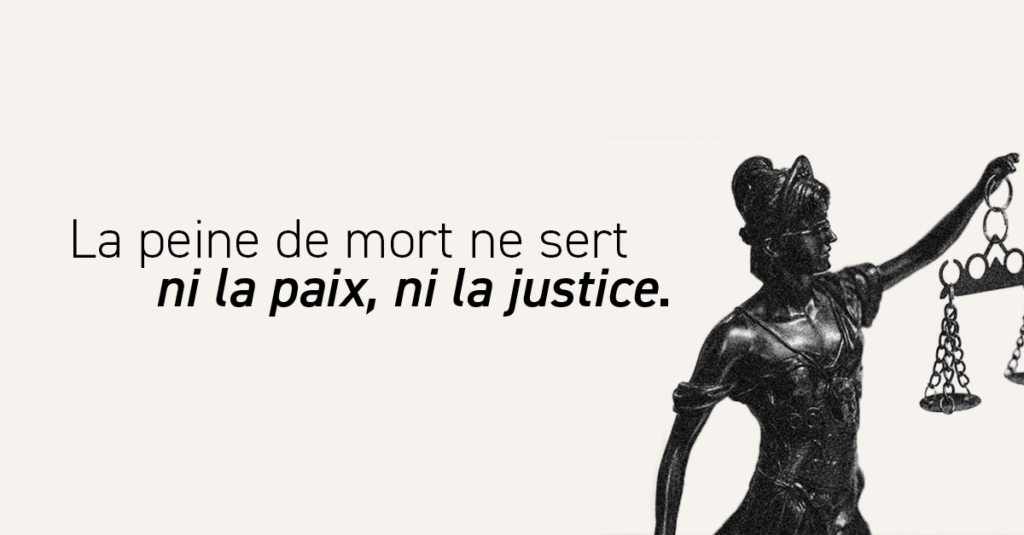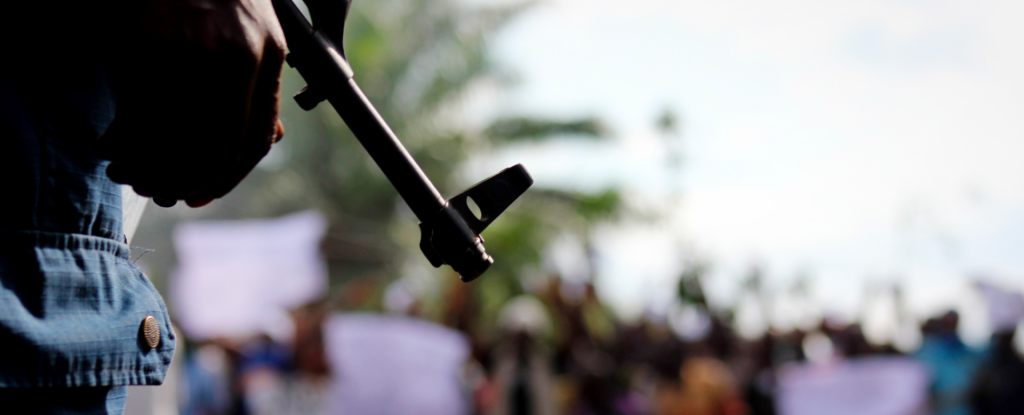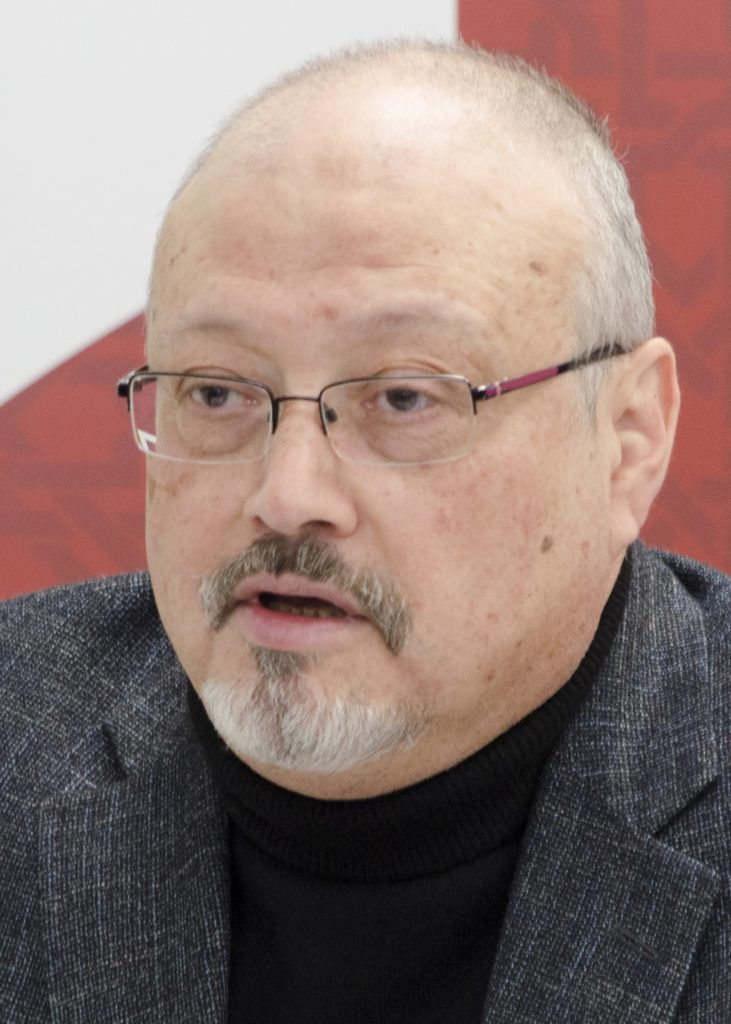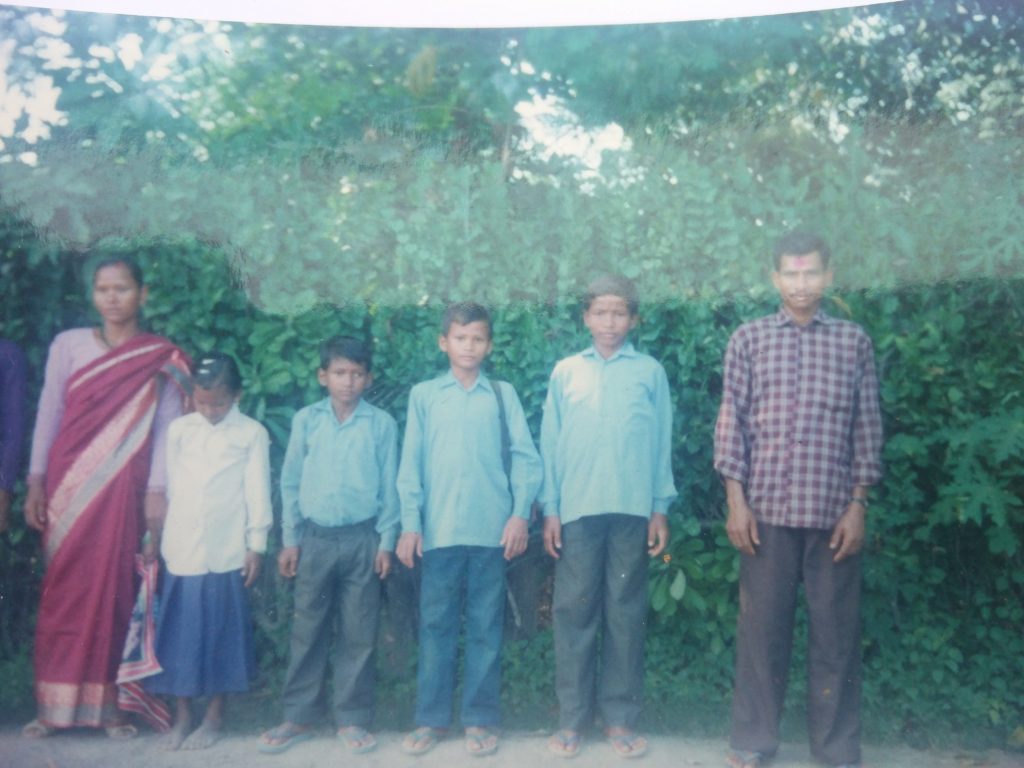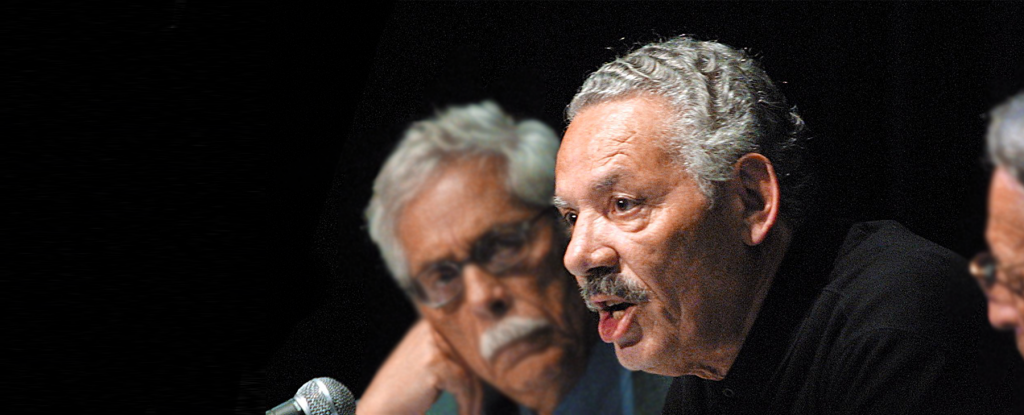DRC: “I am filing a complaint in the memory of my husband, Pascal Kabungulu”
Introduction
Déborah Kitumaini Kasiba is the widow of eminent human rights defender, Pascal Kabungulu, who was assassinated in the Democratic Republic of Congo (DRC) ten years ago. She lost everything: her husband, her belongings, and her country. Since then, she has been living in Canada with her six children. Despite the tremendous loss she has suffered, at 56 years old Déborah remains full of vivacity and courage.
Ten years after Pascal’s death and after years of ineffective judicial processes in the DRC, Déborah and her family have decided to file a complaint with the United Nations, with the help of two NGOs: the Canadian Centre for International Justice (CCIJ) and TRIAL (Track Impunity Always). Before filing this complaint, Déborah shared her story with us.
“A courageous, proud, funny, and tender man”
Deborah, could you please tell us about Pascal Kabungulu and what kind of man he was?
My husband, Pascal Kabungulu, was a journalist and Secretary General of the Congolese NGO Héritiers de la Justice (Heirs of Justice), which works to promote human rights and peace in the region of South Kivu. Pascal was committed to the human rights cause and fought to denounce abuses that were committed in the DRC.+
In July 2005, he was assassinated, in front of my own eyes and those of my children. We have every reason to believe that those who murdered him did so to keep him quiet.
Pascal was an exceptional husband and father. He was the love of my life. He was a courageous, proud, funny, and tender man, who was capable of a love and generosity that was limitless for his loved ones. It has been ten years since he was taken from us, but not a single day goes by that we don’t think of him!
In your opinion, why would your husband need to be kept quiet?
Pascal had denounced many different abuses in which authorities from Mwenga, South Kivu, were implicated – namely corruption, especially in relation to the gold mines. Héritiers de la Justice had compiled a great number of testimonies regarding this matter.
The men who were denounced [in these reports and testimonies] did not appreciate it and wanted to prevent Pascal from speaking out further. Before assassinating Pascal, they had repeatedly threatened him. By targeting Pascal – a well known and popular figure – they wanted to equally send a message to other human rights defenders and the general public.+
“Today, you are going to die!”
What happened on the night your husband was assassinated?
On 31 July 2005, my husband had returned home from a trip to Rwanda. He arrived home around 8:30pm and we spent the evening together as a family. Pascal spent some time with the kids and we watched television together before retiring to the bedroom to sleep. In the middle of the night, one of my sons began to scream, and in turn I heard a threatening voice yell out, “If you cry again, I’m going to kill you.”
My husband left the bedroom, while I ran to the window to scream for help. Men in military uniforms had entered our home and captured Pascal. They said: “Kama unakimbiyaka leo utakufa,” which essentially translates to “You have successfully eluded us until now, but today you are going to die.” I suddenly heard the sound of gunfire and of footsteps running out the door, before finally seeing that Pascal was lying on the floor of the living room, bleeding. I approached Pascal and held him in my arms, while my sons ran outside to ask the neighbours for help. Pascal was already unconscious.
Our neighbours eventually appeared and helped us transport Pascal to the local medical centre, but his injuries were so severe that he needed to be taken to the hospital. The doctors pronounced him dead shortly after we reached the hospital.
And you, did you also suffer from threats or intimidation?
Yes, many times, even when Pascal was alive: they would come knocking on our doors but they never managed to come in until that fatal day. After Pascal’s death, armed men in uniforms came to my workplace looking for me, and wandered around our home while the kids and I were alone.
The threats became more palpable every day and my husband’s colleagues took these threats seriously and became concerned. At their insistence we left the DRC in haste, just a few days after Pascal’s death, and in doing so we had to leave almost everything behind.+
Where did you go when you initially fled the DRC?
We left first to the border with Rwanda, carrying just the clothes on our backs and very few belongings in a small suitcase. I left in a taxi with my smallest children in tow, while my older sons fled by foot. Because my son Heri had the Kabungulu family name in his identity documents, he was stopped at the border for several hours. Having seen his passport and his name, the border guard told him: “The Kabungulus are not allowed to leave the country.” Heri was only finally able to leave thanks to the intervention of a friend.
After we finally crossed the Rwandan border, we took a bus to Uganda. We first stayed in a hotel in Kampala, until members of Héritiers de la Justice graciously provided private accommodation for us. We remained refugees in Uganda for about a year.+
“We were filled with fear”
How did you survive this intense period of your life?
It was incredibly difficult! We did not speak the language, my children were not in school, and we were all extremely traumatised by what had happened. We were afraid that the threats and intimidation would continue. One of my cousins also had to flee the DRC shortly after us and the threats continued even in Uganda. These people have a long arm and can reach far, you know!
We were reclusive during the first few months, as we were filled with fear. It was as though my life had ended at the border… I wasn’t coping well at all. A doctor helped me anchor myself in what remained in my life: my children. They were the ones who saved me from falling into despair.
After a year in Uganda, you went to Canada…
Yes, thankfully Canada accepted our refugee claim. We are incredibly grateful for having been given the opportunity to resettle and rebuild our lives here, despite the void and sadness caused by Pascal’s absence.
But I won’t hide the fact that the beginning was not easy: I didn’t have any friends, money, or work, and I had six children to take care of. We had to rebuild everything from scratch.
Thanks to my education and experience, I was able to find work and things slowly came together one by one. Today, all of my children are working or studying. Some are married and have created their own families. Seeing my grandchildren fills me with joy, even though I sorely wish that Pascal could have met them!
And how do you feel today?
My husband had prepared us, the children and me, for the fact that he had enemies and was in danger of being killed. But, this doesn’t prevent the fear, the sadness, or the post-traumatic stress that we endured, even if the intensity of these feelings diminishes slightly with time. Ten years later, this event is just as much a part of our lives: my heart still beats faster at the sight of police and military uniforms, and we still have not felt comfortable to travel outside of Canada!
Your family appears incredibly motivated to contribute to the public interest. Where does this spirit come from?
In Bukavu, Pascal’s NGO had clearly given new meaning to the word “justice” through the work that they carried out. I believe my children have all inherited their father’s spirit and convictions; he was certainly an inspiration to them. For example, my son Heri says, “I owe him my character and my strength. He never allowed things to be too easy; he always encouraged us to work hard. The values that he has passed down to me are forever engraved on my heart.”
You know, after his death, we learned that Pascal had been financially helping several families in our community. He supported them so that they could buy food or pay for their children’s studies. He did all of this with complete discretion and without expecting any recognition.
And you, Déborah, are you also a human rights activist?
My profession has always been a mid-wife. I practiced this profession for many years, before founding my own medical centre in Bukavu, where I served as Director until I left the country. My trajectory shifted once I was in exile and now I work two jobs to make ends meet.
After Pascal’s death, I also assumed a small part of his struggle. In 2011, my family and I created the Pascal Kabungulu Foundation, which most notably supports others like us who are the widows and orphans of human rights defenders. And believe me, there are many, because in the DRC they’ll cut your head off if you dare speak the truth! We help people in the DRC, but also other refugees, like us, in Canada to facilitate their arrival and resettlement in this country.
“There are numerous activists who continue to face death threats”
The struggle your husband fought for during his life, was it different than that of human rights defenders today? What has changed?
Things haven’t radically changed. But I believe that Pascal’s struggle has given strength to many young human rights defenders. The new generation of defenders is extremely courageous, despite the continued repression in the DRC. There are numerous activists who continue to denounce abuses, but this means that there are also numerous activists who continue to face death threats.
We have stayed in touch with many activists. Some of them even still refer to my children as “little brother” and urge them to carry on their father’s struggle. I am proud to see that the seeds planted by Pascal have indeed blossomed!
“Justice must put an end to fear and impunity”
You decided to file a complaint with the United Nations because of Pascal’s murder. Why?
I am a widow. My children are fatherless. It has been ten years since we were forced to flee our country and live in exile, leaving everything behind us. We continue to live in fear, while Pascal’s murderers – who were clearly identified as the culprits – are living freely. These perpetrators stole Pascal away from us, and by doing so they stole a cherished piece of our lives.
Arresting and punishing the perpetrators will not bring back Pascal. Nevertheless, we are hoping that the United Nations and the DRC will ensure that justice is finally served, so that at the very least we can reclaim our lives without living in fear. There needs to be an end to fear, as well as an end to impunity.
What are your hopes for the future, Déborah?
We hope justice will bring us some peace. Although we have obtained Canadian citizenship and we are very happy to be living in this country, we have also remained profoundly attached to our home country and miss it dearly.
I dream of the day I can return to visit the DRC, to see all my loved ones again, to breathe the air of Bukavu and to walk once again on its soil, in safety and security, holding my head high and knowing that the men who killed my husband will no longer be able to harm us or others. I hope that this day will come soon!

